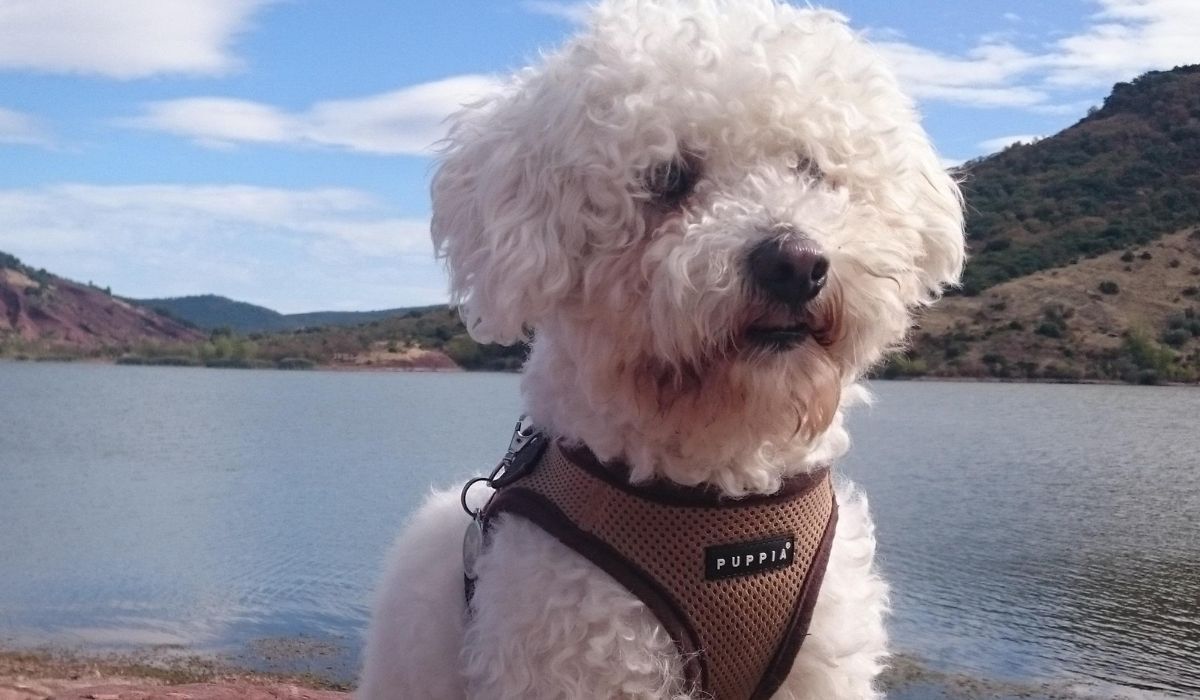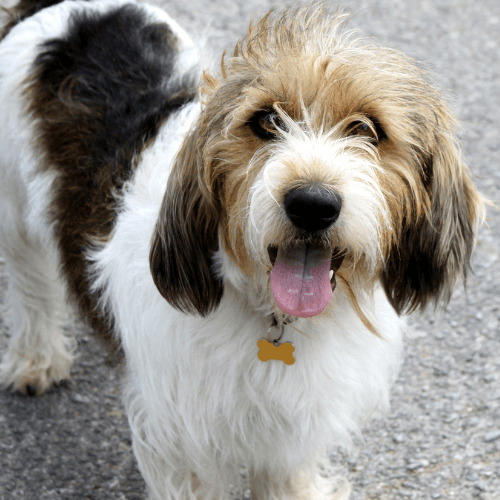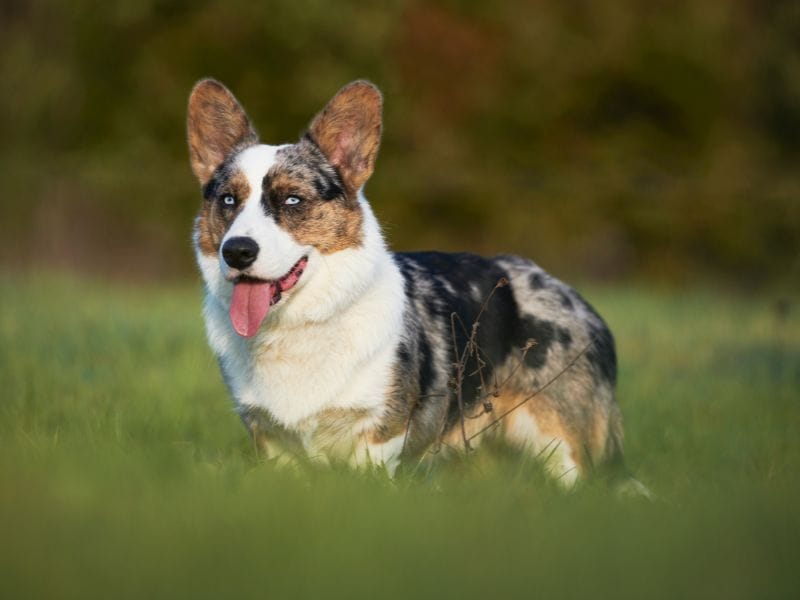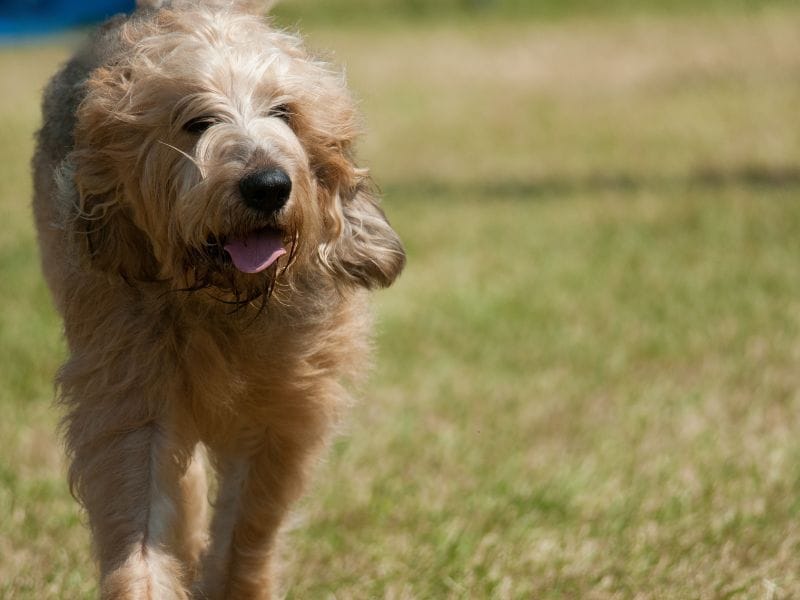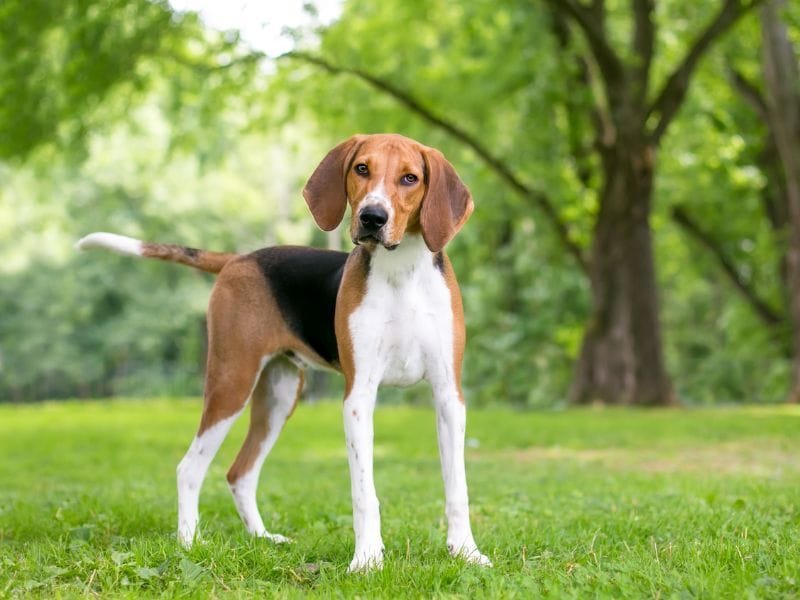Let’s talk about… Bolognese: what are they?
- The Bolognese is a charming and affectionate small dog breed that hails from Italy.
- They are named after the city of Bologna, where they were highly regarded as companions to noble families during the Renaissance period.
- The Bolognese is often referred to as a "Bichon Bolognese" due to its resemblance to other Bichon breeds, such as the Bichon Frisé and the Maltese. However, the Bolognese is a distinct breed with its own unique characteristics.
- Bolognese dogs have a distinctive appearance with their compact size, square build, and a beautiful coat of long, fluffy white hair.
- They are usually between 25-30cm in height.
- These petite pooches tend to weigh between 2.5-4.5kg.
- They have a life expectancy of around 12 to 14 years on average.
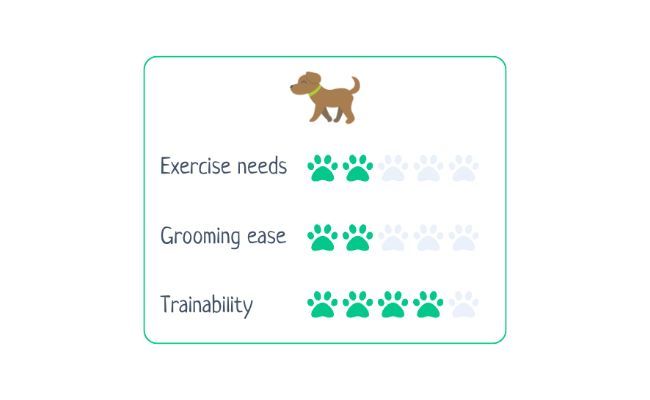
What is the temperament of Bolognese like?
- Bolognese dogs have a gentle and loving temperament, making them excellent companions and family pets.
- They are known for their loyalty and devotion to their owners, forming strong bonds with their families.
- Bolognese dogs are generally friendly and sociable, getting along well with children and other pets when properly socialised.
- They have a calm and patient nature, but they are not as outgoing or energetic as some other small breeds.
- Bolognese dogs are content with spending quality time with their loved ones and enjoying a relaxed and comfortable lifestyle.
- It's important to note that Bolognese dogs may be reserved or cautious around strangers, displaying a protective instinct. Early socialisation is key to help them feel more comfortable in new situations and with unfamiliar people.
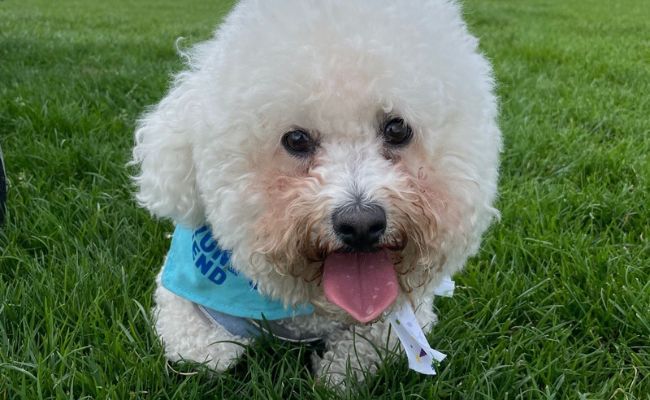
How much exercise do Bolognese dogs need?
- Bolognese dogs are a small breed with moderate exercise needs.
- They require daily exercise to keep them mentally and physically stimulated, but their exercise requirements can be met with shorter periods of activity.
- Aim for around 30 minutes to 1 hour of exercise per day, divided into multiple sessions.
- Activities such as leisurely walks, playtime indoors or in a securely fenced yard, and interactive games can help fulfil their exercise needs.
- Bolognese dogs also enjoy mental stimulation, so incorporating puzzle toys, obedience training, and interactive play can keep their minds engaged.
- Bolognese puppies have developing bones and joints, and their exercise should be carefully managed to prevent injury. Puppies have bursts of energy but should not engage in excessive high-impact activities. Provide short, controlled play sessions and gentle walks on soft surfaces to protect their growing bodies.
- By the time they reach around 12 to 18 months of age, they can typically handle a full exercise regimen suitable for adult dogs, but your vet can advise on your own pup.
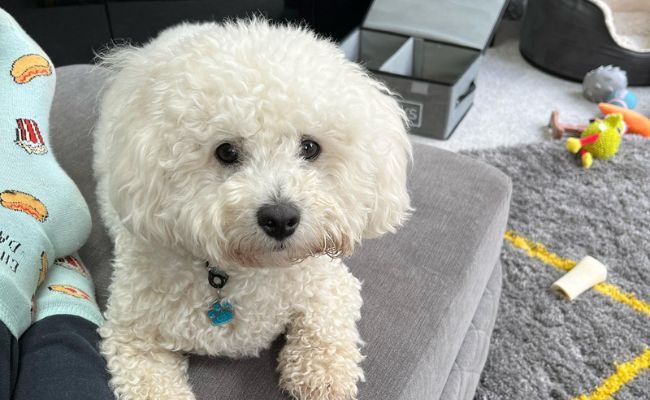
Do Bolognese require a lot of grooming?
- Bolognese dogs have a stunning coat of long, fluffy white hair that requires regular grooming.
- Brush your Bolognese's coat at least a few times a week to prevent tangles and matting. Use a comb or a pin brush to gently remove any knots or debris.
- Bolognese dogs typically require bathing once every 3 to 4 weeks, or as needed. Use a mild dog shampoo and ensure thorough rinsing to avoid skin irritations.
- Occasional trimming may be necessary to maintain a tidy appearance, a professional groomer can help and advise.
- Like any dog, regular tooth brushing with a dog-specific toothpaste twice daily is ideal. If you can’t manage that often, just do it as often as you can.
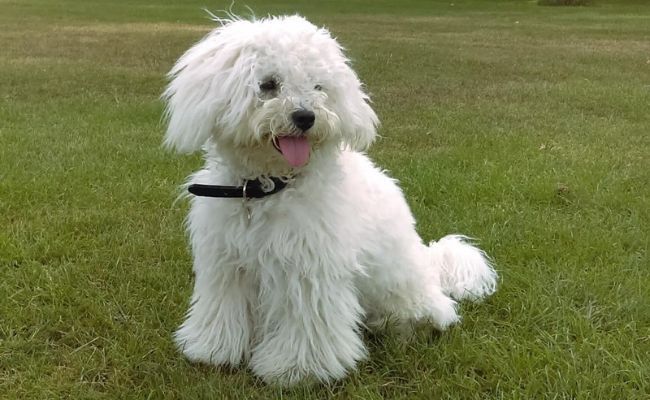
Are Bolognese Easy to Train?
- Bolognese dogs are known for their intelligence and willingness to please, which can make them relatively easy to train.
- With consistency, positive reinforcement, and patience, Bolognese can quickly pick up on commands and behaviours.
- Start training from an early age, focusing on basic obedience and socialisation.
- Keep training sessions short and engaging to maintain their interest and prevent boredom.
- Bolognese dogs thrive on positive reinforcement, so be sure to reward them with treats, praise, and affection when they exhibit desired behaviours.
- By establishing clear boundaries and providing consistent training, Bolognese can become well-behaved and obedient companions.
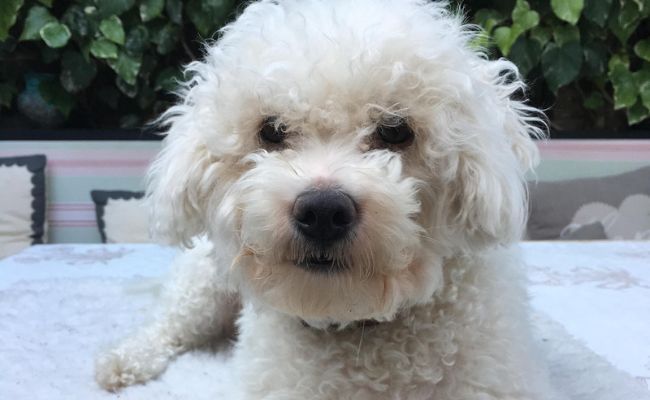
What do Bolognese eat?
- Bolognese puppies have specific dietary requirements to support their growth and development so be sure to choose a high-quality, commercially prepared puppy food that is appropriate for small breeds.
- Feed them 3-4 times a day until they are 6 months old, then reduce to twice a day, follow the feeding guidelines provided by the manufacturer and consult with a veterinarian for personalised recommendations based on your puppy's age and specific needs.
- Bolognese puppies generally transition to adult dog food around 10-12 months of age. However, the exact timing may vary depending on their individual growth and development and the type of food. Consult with a veterinarian for guidance on when and how to switch to adult dog food.
Are Bolognese healthy?
Bolognese dogs are generally a healthy breed, but like all dogs, they may be prone to certain health conditions. Some common health concerns in Bolognese dogs include:
Bones and Joints
- Hip Dysplasia - a condition where the thigh bone and pelvis do not sit together properly at the hip joint, which can lead to discomfort and arthritis
- Legg-Calve-Perthes Disease: a hip condition that affects the blood supply to the head of the femur bone, leading to breakdown of the bone, pain and lameness.
- Luxating patella - this is when a dog’s kneecap moves out of where it should normally be
Dental
- Periodontal Disease - a build up of plaque and tartar on a dog’s teeth leading to inflammation, infection and tooth loss
This list is by no means comprehensive, if you have any concerns about the health of your dog, or if you want to discuss further if a Bolognese is right for you, consult with your vet.
BorrowMyDoggy loves Bolognese
BorrowMyDoggy has 181 Bolognese members.
Information on this page should never replace advice given by your veterinarian. Potential health issues presented are given as a guide only and are not meant to be comprehensive. If you ever have any concerns about your dog’s health contact your local vet.
